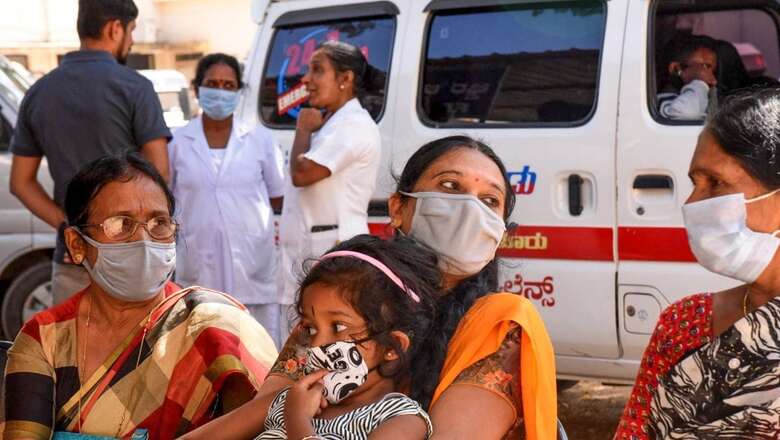
views
Both COVID-19 and the flu can cause symptoms that range in severity from asymptomatic (not showing any symptoms) to severe. Taste and smell can shift or even go away; COVID-19 individuals are more likely to experience this. The following are signs of the flu and COVID-19: Sore throat; fever or feeling like you have the chills; Cough.
- Breathing difficulties or shortness of breath, Fatigue (tiredness)
- Runny or stuffy nose
- Muscle pain or body aches
- Headache
- Vomiting
The typical course of flu symptoms is one to four days following infection. COVID-19: Generally, symptoms might appear two to five days and even up to fourteen days after infection. Novel variation JN.1, a variation that is extremely immune-evading. Most cases to yet have been quite minor. Fever, cough, runny nose, sore throat, body aches, and exhaustion are some of the symptoms.
Compared to the flu, COVID-19 patients may be contagious for a longer period of time.
People with flu virus infection are potentially contagious for about one day before they show symptoms. However, it is believed that flu is spread mainly by people who are symptomatic with flu virus infection.
- Older children and adults with flu appear to be most contagious during the first 3-4 days of their illness, but some people might remain contagious for slightly longer periods.
- Infants and people with weakened immune systems can be contagious for even longer.COVID-19
- On average, people can begin spreading the virus that causes COVID-19 2-3 days before their symptoms begin, but infectiousness peaks one day before their symptoms begin.
- People can also spread the virus that causes COVID-19 without experiencing any symptoms.
- On average, people are considered contagious for about eight days after their symptoms began. Overall, COVID-19 seems to cause more severe illness in some people. Severe COVID-19 illness resulting in hospitalization and death can occur even in healthy people. Some people that had COVID-19 can go on to develop post-COVID conditions or multisystem inflammatory syndrome (MIS)
- Flu – Most people who get flu will recover on their own in a few days to two weeks, but some people will experience severe complications, requiring hospitalization. Some of these complications are listed above. Secondary bacterial infections are more common with influenza than with COVID-19. Diarrhoea is more common in young children with flu than in adults with flu.


















Comments
0 comment